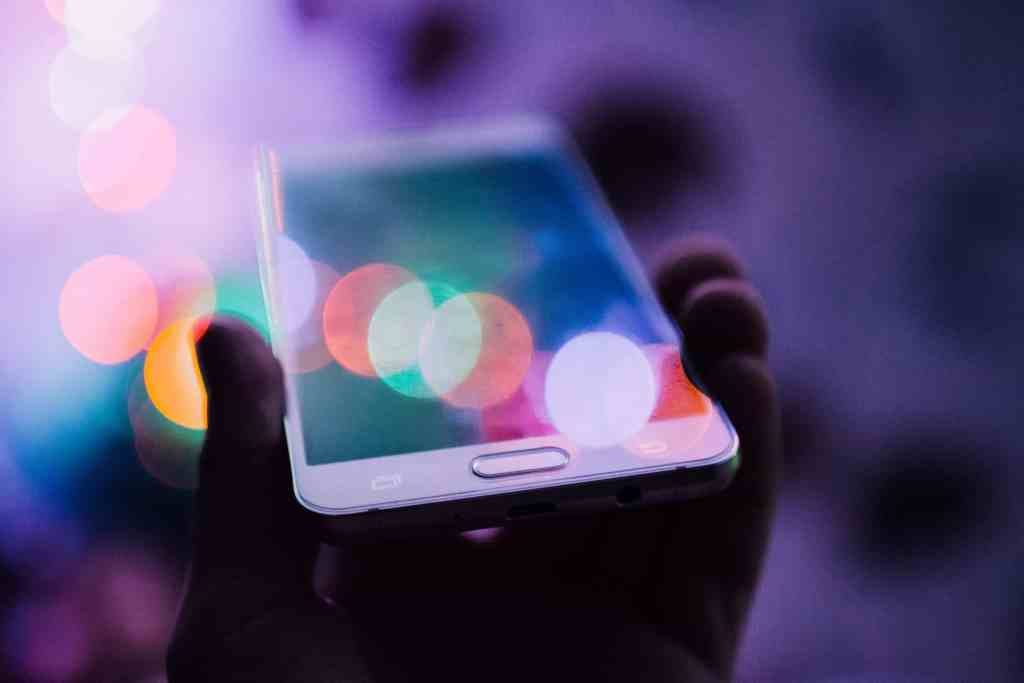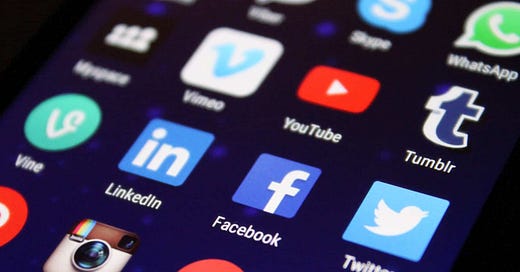
The Pandemic Forced Us to Live Digitally. Now We're Stuck Online.
The Wall Street Journal published what I found to be an unnerving article this week about how the pandemic necessitated the rise in not only technology use but in technology reliance.
In the article, 20 points were listed. I read them while squinting through blue-light glasses that didn't seem to make my eyes feel any better than before. The writer framed these points as adaptations people have made in response to pervasive and lengthy stay-at-home orders.
I’m not so sure each of them deserve the same level of praise.
Take, for example, the point about virtual doctor’s appointments. Fair enough. Innovative, safe, and necessary, especially for those with pressing health concerns. Touting this as new-age thinking that will bring us into the future is very different than applauding a rise in video dating.
Video dating, as an adjunct to online dating, which has itself been streamlined with apps, is another step towards living life behind a screen.
Dating apps have already truncated online dating into a type of roulette gamble; swiping right or left on photos en masse has made people claim that online dating is merely a “numbers game” more than anything else.
Again, this imbues in me a sense of foreboding more than awe. The technology in our homes and cars are more powerful than ever, and cell phones are leaps and bounds smarter than their users.

The pandemic has forced us all to consider what it would be like if these high-tech tools became the mode with which we existed in the world.
From doctors appointments to funerals to happy hours, screen time has logged it all. The public health limitations that have handcuffed us in 2020 unleashed our ability to connect over the web. With the widespread closure of gyms and fitness centers, even at-home workouts were virtually augmented with added screens.
What we’ve learned from the pandemic, if anything, is that screens have become inseparable from waking life. Before, this was not necessarily the case, for one could go out and see real people in the real world. But now, the “real” world is actually online and neatly stored in the cloud. Online is where (if “where” is the correct word for it) you socialize, workout, learn, date, and see your doctor.
Even books have seemingly become outmoded. The Journal article noted that E-book sales have skyrocketed this year. Despite the benefits of increased reading (and I enjoy a good Ebook as much as anyone), this only adds to the pattern of heightened screen time.
The startling statistic that was almost hidden right in the middle of the Journal article seemed prescient and telling:
“According to a survey commissioned by optical retailer Vision Direct, people’s average daily screen time has ballooned to more than 19 hours a day when accounting for viewing multiple devices at once (you know who you are). If this pace continues, a newborn with an average life expectancy will spend nearly 58 years bathed in the glow of laptops, smartphones, televisions and whatever screens 2048 brings.”
This was the statistic that nearly compelled me to close my iPad (which has now replaced the physical newspaper in my house) and toss it out the window. Between reading the “paper” on my iPad, working on my laptop, and answering the incessant buzz of my smartphone, I am nervous to even take a guess at my average daily screen time.
With all the lauding that work-from-home has received, to all the revolutionary technologies that have come about in 2020, I want to pose a question: what was the cost?
I don’t mean to suggest that anyone wanted this year to go the way that it has. Of course not. I only wish to ring the bell (which by now is probably digitized too) about the dominance of our own technologies over our lives.
Operating on a day to day basis without technology has been made all but impossible this year with COVID-19. My worry is what happens next when the virus is eradicated.
Will people suddenly cut back on their digital tools? Their screen time?
Several large technology companies have already announced a permanent shift to work-from-home for their employees. What else will be permanent? What else will be moved from our physical reality to our online reality?
I certainly can’t pretend to have the answers to these questions, for I too am stuck in this online abyss. School and work operate remotely, careers and relationships alike are started and ended remotely.
Where will this all end? Will it even? All our smart devices and our ever-increasing screen time has yet to make us as smart as our tools.
But, at the very least, now I know why my eyes hurt.










